UP Board Class 12 Chemistry Question Paper 2025 PDF (Code 347 KE) is available for download here. The Mathematics exam was conducted on March 8, 2025 in the Morning Shift from 2:00 PM to 5:15 PM. The total marks for the theory paper are 100. Students reported the paper to be easy to moderate.
UP Board Class 12 Chemistry Question Paper 2025 (Code 347 KE) with Solutions
| UP Board Class Physics Question Paper with Answer Key | Check Solutions |

UP Board Class 12 Chemistry Questions with Solutions
The concentration of 0.2 M H\(_2\)SO\(_4\) solution will be in g/L –
In the following ions which one is a paramagnetic ion?
Which of the following ions does not form coordination compound?
Acetic acid reacts with hydrazoic acid in the presence of conc. H\(_2\)SO\(_4\) at 0\(^\circ\)C to form –
Bromination of Aniline gives –
Product obtained by hydrolysis of inulin is –
Define Raoult's Law and explain it.
In solution Cu\(^+\) ions are colourless while Cu\(^{2+}\) ions are coloured. Why?
Explain unidentate and bidentate ligands giving examples.
Write the application of Grignard reagent.
Find the osmotic pressure of \(\dfrac{M}{10}\) urea solution at \(27^\circ\mathrm{C}\) \ (Given: \(R=0.0821\) L\,atm\,K\(^{-1}\)\,mol\(^{-1}\)).
Write the structures of all possible isomers of alcohol having molecular formula C\(_4\)H\(_{10}\)O.
Explain Clemmensen reduction giving example.
What is Tollen's reagent? Write the chemical equation of its reaction with glucose.
A solution of urea is 6% by mass. Calculate the mole fractions of urea and water in the solution. (Molecular mass of urea = 60).
Find the emf of the cell reaction: \(\mathrm{Zn(s)+2Ag^+(aq)\rightarrow Zn^{2+}(aq)+2Ag(s)}\).
\(\,E^\circ_{\mathrm{Zn^{2+}/Zn}}=-0.76\,V,\quad E^\circ_{\mathrm{Ag^+/Ag}}=+0.80\,V\).
Explain order and molecularity of a reaction giving example.
Which elements are called transition elements? Explain: (i) Transition metals generally form coloured compounds, (ii) Transition metals or ions and many of their compounds show paramagnetic behaviour.
What is electrode potential? Give the factors which affect the electrode potential of a metal.
Prove that the time taken to complete 99.9% reaction is ten times the half-life period \((t_{1/2})\) for a first-order reaction.
Write the IUPAC names of the following coordinate compounds:
(i) [CrCl\(_2\)(en)]Cl
(ii) Cs[FeCl\(_4\)]
(iii) K\(_3\)[Co(C\(_2\)O\(_4\))\(_3\)]
(iv) [CoCl\(_3\)(NH\(_3\))\(_3\)]
Write chemical equations of two methods of preparation of glucose. How will you obtain saccharic acid and gluconic acid from glucose?
Write chemical equation for the formation of chlorobenzene by Sandmeyer reaction. How can the following compounds be obtained from chlorobenzene? Clarify giving chemical equations.
(i) Phenol
(ii) Toluene
(iii) Diphenyl
Write down the method of preparation of phenol. Write chemical equations of the reaction of phenol with the following: (i) Conc. HNO\(_3\) \quad (ii) Bromine water \quad (iii) Zinc
Write the chemical equation for the preparation of anisole. Write the chemical equations of its reactions with:
i) Acetyl chloride
ii) Hydrogen iodide
iii) Mixture of conc.\ H\(_2\)SO\(_4\) and conc.\ HNO\(_3\)
Write the structural formula of benzaldehyde. Write chemical equations of the reactions of benzaldehyde with (i) NH\(_2\)NH\(_2\)
(ii) Tollen's reagent
(iii) HNO\(_3\) and H\(_2\)SO\(_4\)
(iv) NaOH.
Write the IUPAC name of Acetaldehyde. Write its chemical equations with (i) NaHSO\(_3\)
(ii) NaOH
(iii) NH\(_2\)OH
(iv) CH\(_3\)OH in the presence of HCl gas.
Describe the laboratory method to prepare aniline and write the related chemical equation. Write also the equations of its two chemical properties and uses.
Write short notes on the following:
i) Carbylamine reaction
ii) Hofmann's bromamide reaction
iii) Acetylation
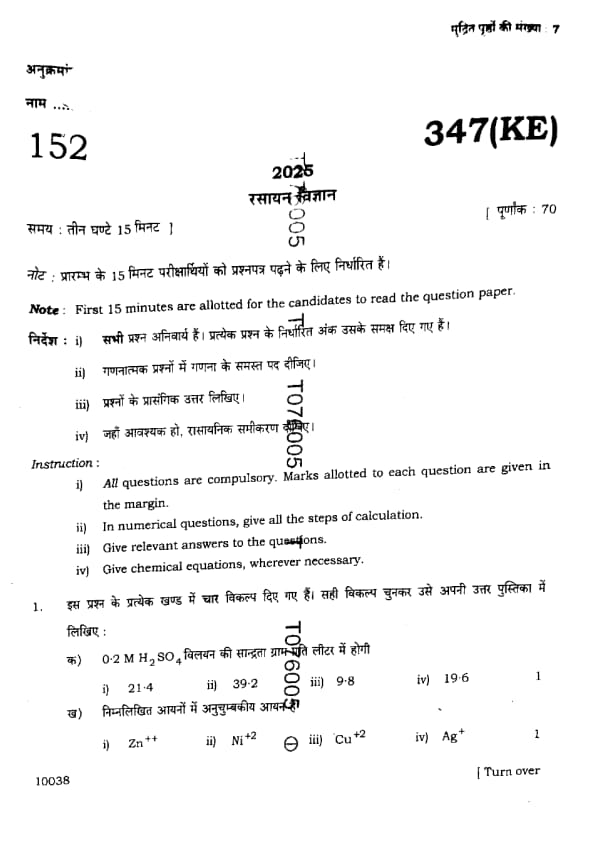
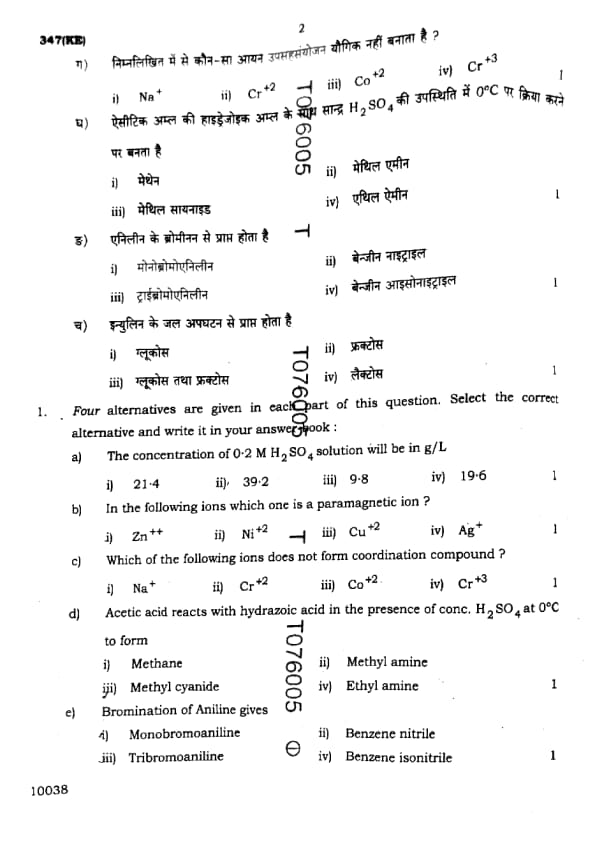
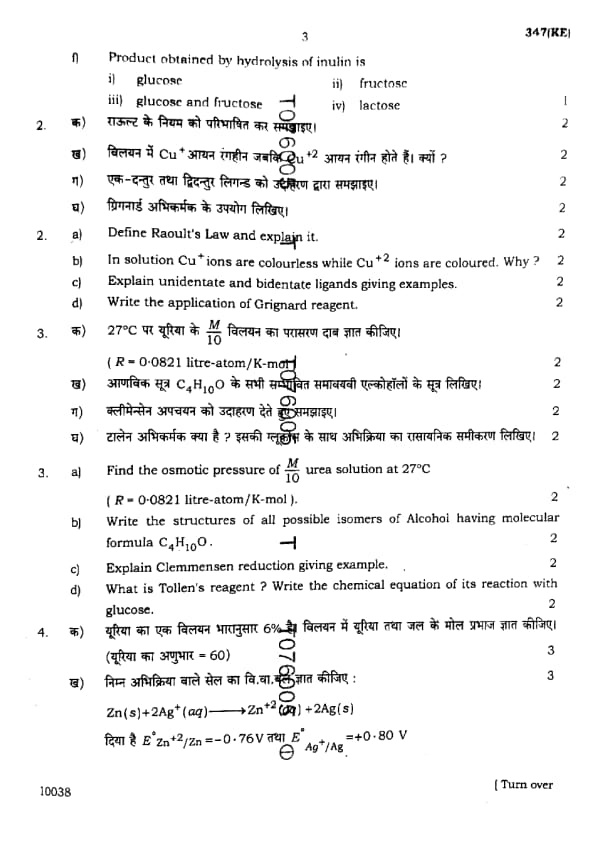
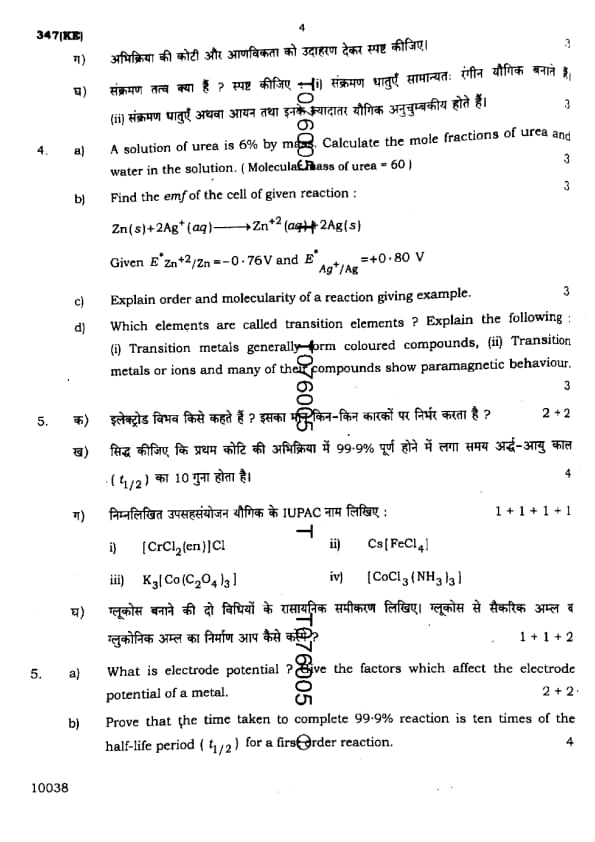
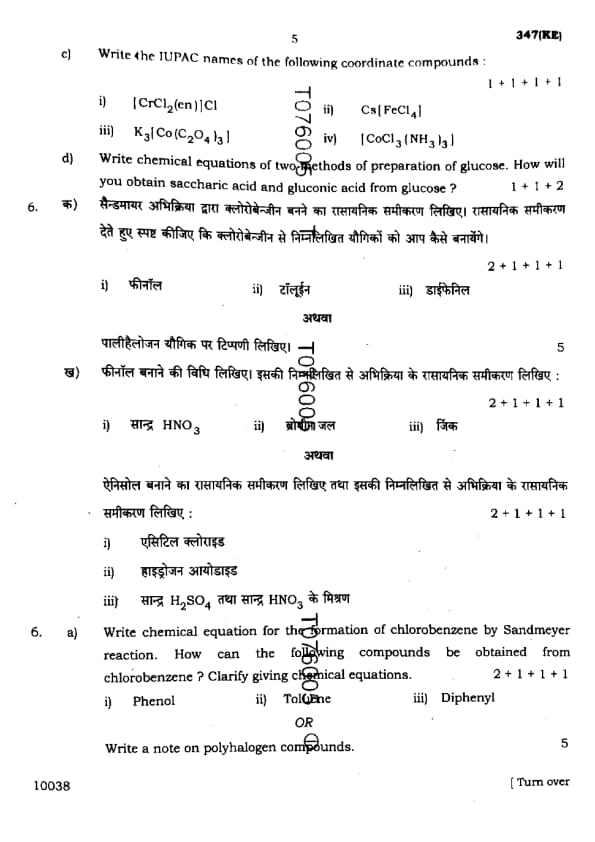
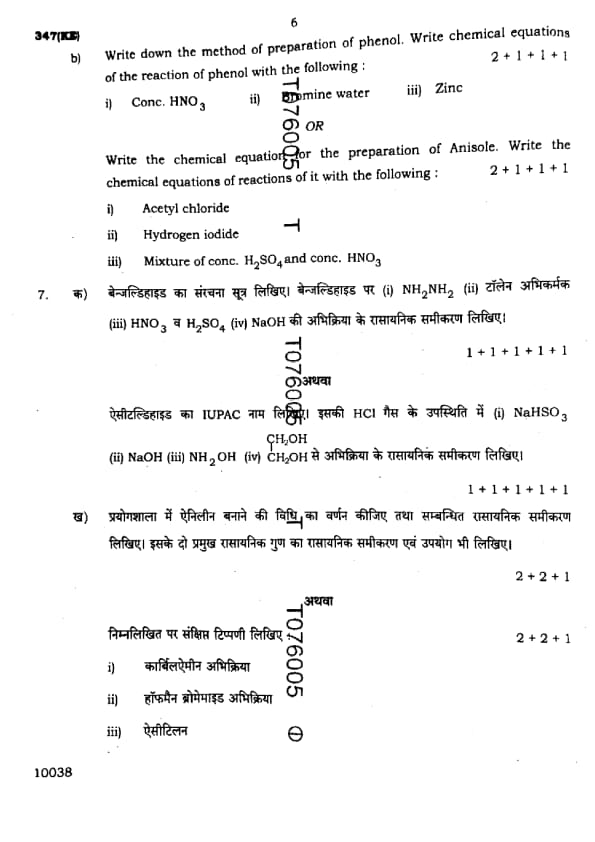
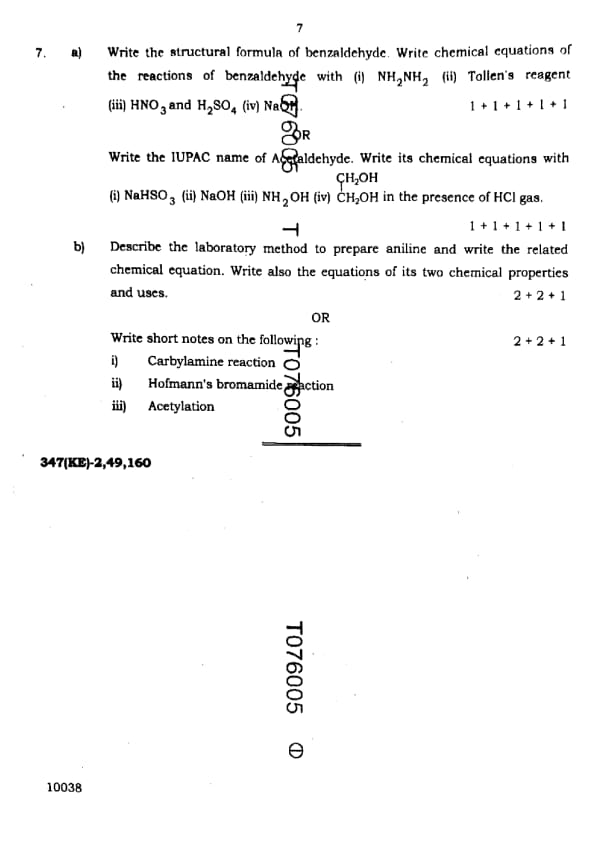



Comments